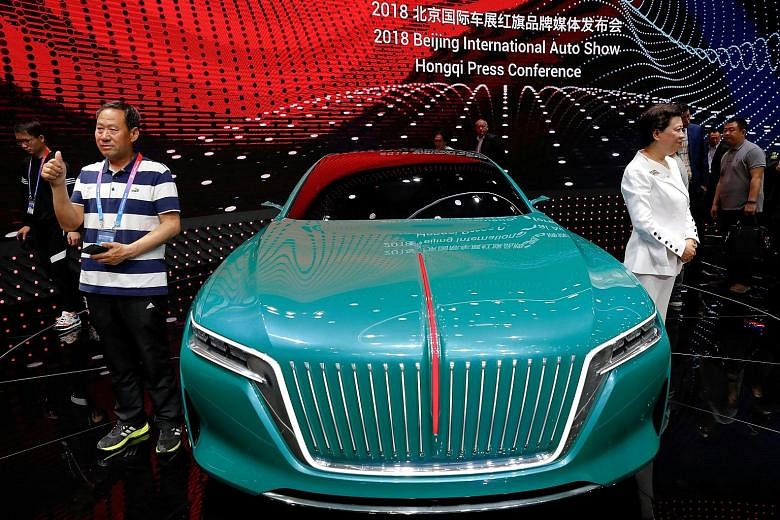HONG KONG • China's car bailout marks a worrying shift into reverse gear. Beijing has awarded FAW Group, the state-owned maker of late chairman Mao Zedong's limousine, a US$144-billion (S$199-billion) credit line worth almost as much as the whole of Toyota.
Propping up this struggling giant may help rescue China's rust belt, but an emboldened FAW will now be less likely to sell partners like Volkswagen controlling stakes in joint ventures.
Worse, supporting the company against stronger local rivals could unbalance overdue consolidation.
As manufacturer of the "Red Flag" marque that occasionally ferries officials around Beijing, FAW can claim a certain affection in the halls of the Zhongnanhai leadership compound. At dealerships, not so much.
Although its joint ventures with Volkswagen, Toyota and Mazda make some of the country's most popular passenger vehicles, its own cars have generally undersold those produced by domestic competitors.
Loss-making Tianjin FAW Xiali, one of FAW's two listed entities, sold less than 1,000 vehicles last month.
Part of the reason for the generous cheque might be the political problem brewing in China's automotive industry. A liberalisation allowing overseas groups to buy control of joint ventures could see investors flee domestic manufacturers.
When Brilliance announced that it would let BMW take over its joint venture this month, for example, its shares tanked; investors saw little value left over.
Such weakness buttresses the case for offloading joint ventures to foreign partners and using the funds raised to develop competitive home-grown designs, while consolidating the number of local players.
To that end, analysts expect Beijing to marry FAW with Ford's jointventure partner, Changan, and Dongfeng, which works with Nissan and Honda. They would create a giant that could churn out 10 million units a year.
Before Thursday's injection, FAW would probably have come last in this structure, given limited nostalgia for Red Flag limos. But officials' concern over labour unrest in struggling north-eastern China, where the group has a huge manufacturing footprint, may have given the old-school player greater clout.
With US$144 billion on call from China's largest state banks, FAW can resist any proposed cost cuts - preserving jobs at the expense of efficiency. Chinese carmakers might get bigger, but this is no way to make them better.
REUTERS

